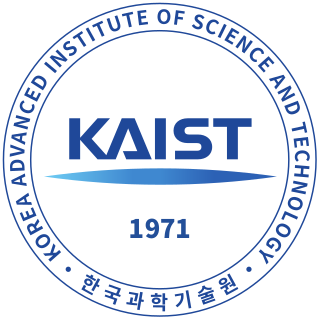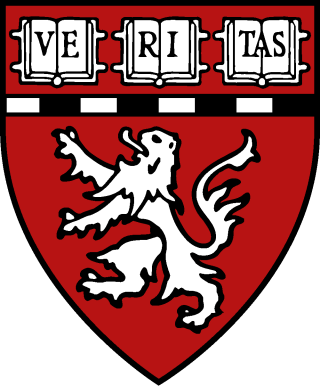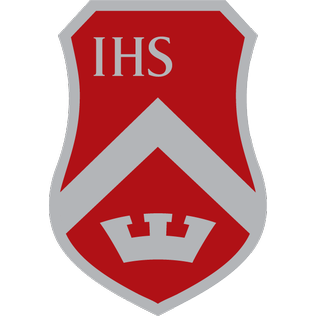
The Korea Advanced Institute of Science and Technology (KAIST) is a national research university located in Daedeok Innopolis, Daejeon, South Korea. KAIST was established by the Korean government in 1971 as the nation's first public, research-oriented science and engineering institution. KAIST is considered to be one of the most prestigious universities in the nation. KAIST has been internationally accredited in business education, and hosts the Secretariat of the Association of Asia-Pacific Business Schools (AAPBS). KAIST has 10,504 full-time students and 1,342 faculty researchers and had a total budget of US$765 million in 2013, of which US$459 million was from research contracts.

Seoul National University is a public research university located in Seoul, South Korea. It is one of the SKY universities and a part of the Flagship Korean National Universities.

Harvard Medical School (HMS) is the medical school of Harvard University and is located in the Longwood Medical Area in Boston, Massachusetts. Founded in 1782, HMS is one of the oldest medical schools in the United States. Harvard Medical School (HMS) provides patient care, medical education, and research training through its 15 clinical affiliates and research institutes such as Massachusetts General Hospital (MGH), Dana–Farber Cancer Institute, Brigham and Women's Hospital, Beth Israel Deaconess Medical Center, Boston Children's Hospital, Mount Auburn Hospital, McLean Hospital, Cambridge Health Alliance, The Baker Center for Children and Families, and Spaulding Rehabilitation Hospital. Harvard Medical School also partners with newer entities such as Harvard Catalyst, Broad Institute of MIT and Harvard, Harvard Stem Cell Institute, the Center for Primary Care, and Wyss Institute for Biologically Inspired Engineering.
The Harvard Division of Continuing Education is a division of the Faculty of Arts and Sciences at Harvard University. It is responsible for four major programs in continuing education:
- Harvard Extension School
- Harvard Summer School
- Harvard Professional & Executive Development(Founded 2011)
- Harvard Institute for Learning in Retirement

Education in South Korea is provided by both public schools and private schools. Both types of schools receive funding from the government, although the amount that the private schools receive is less than the amount of the state schools.

Korea University is a private university in Seoul, South Korea. Established in 1905, the university was named after Goguryeo. The university is one of the SKY universities.

Inha University is a private research university located in Incheon, South Korea. Known traditionally for research and education in the engineering and physical sciences, the university was established by the first president of South Korea, Syngman Rhee. Inha is a Korean-American collaboration school, even in its name: the Morpheme "In" comes from the city of Incheon and "Ha" from Hawaii, USA. Started as a polytechnic university in 1954, named Inha Institute of Technology, the institute has been achieving national recognition and a strong reputation as a technological research university thereafter.

Sogang University is a private research university in Seoul, South Korea. It was established in 1960 by Fr. Theodore Geppert, SJ with the Wisconsin Province of the Society of Jesus with the school being the oldest Jesuit institution of higher education in the country.

Rev. Henry Gerhard Appenzeller was a Methodist missionary. He and four other missionaries, including Horace N. Allen, Horace G. Underwood, William B. Scranton, and Mary F. Scranton introduced Protestant Christianity to Korea from 1885 to 1902. He was known for his three major contributions to Korea: the Paichai College Hall, the First Methodist Episcopal Church of Seoul, and the translated New Testament.

The University of Seoul is a municipal public university in Seoul, South Korea. UOS is famous in South Korea for a very large number of alumni working as national or municipal government officials in South Korea. UOS specializes in urban science and has top-tier programs in environmental engineering, taxation, transportation engineering, urban planning and design, landscape architecture, and urban administration.

Konkuk University is a South Korean private university founded in 1931 and it is one of the top universities in South Korea. The university was founded based on three virtues: sincerity, fidelity, and righteousness.
The Leonard N. Stern School of Business is the business school of New York University, a private research university based in New York City. Founded as the School of Commerce, Accounts and Finance in 1900, the school received its current name in 1988.

The Seoul National University of Education (SNUE) is a public university in Seocho-gu, Seoul, South Korea, which provides specialized training for future public elementary school teachers in South Korea. Founded in May 1946 under the name of Kyunggi Public Normal School, the university is the first national university that specializes in elementary school teacher training. The university offers graduate and undergraduate programs, and has an attached elementary school.

The Heritage College of Osteopathic Medicine (OU-HCOM) is the medical school of Ohio University and the only osteopathic medical school in the U.S. state of Ohio. Its mission is to emphasize the practice of primary care and train physicians to serve Ohio, especially in the underserved Appalachian and urban areas of the state.
Duke Kunshan University is a university in Kunshan, Jiangsu, China. It was established in 2018 by a joint venture between Duke University and Wuhan University. The university is an independent legal entity.
Harvard Innovation Labs (i-Lab) is an institution which aims to promote team-based and entrepreneurial activities among Harvard students, faculty, entrepreneurs, and members of the Allston and Greater Boston communities.
The South Korean college entrance system requires all graduating high school students to take an entrance exam called the College Scholastic Ability Test which takes place once every year. Admission to universities in South Korea is heavily dependent on applicants' test scores and grades.

Sikhism in South Korea is a minority religion.
Dong-Sung Cho, is a Korean educator and scholar.

Kim Sin-jin is a South Korean professional footballer who plays as a striker for K League 1 club FC Seoul. He made his debut professional appearance in the 2022 K League 1 season.














